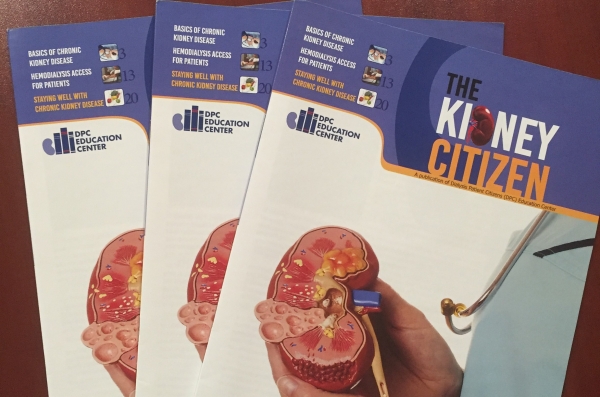News & Events
Discover new information and educational offerings that we provide. Explore our newsletters, blogs and upcoming webinars/conference calls.
Contents:
Surgeons to Attempt Transplants and Drug Treatment with Hepatitis C Positive Kidneys
For several years, kidneys infected with Hepatitis C have been considered unfit for transplants due to the risk for transmission. However, with a new wave of antiviral medications shown to cure Hepatitis C, doctors at the University of Pennsylvania and Johns Hopkins University are planning to attempt transplants with kidneys from deceased Hepatitis C carriers. The patient who receives the kidney would then undergo a 12-week antiviral drug regimen to treat the disease. The trial’s leaders caution that the drugs won’t work for every participant, but argue the process has the potential to eliminate the waste that comes with the disposal of infected kidneys. Researchers say more research is needed to determine an exact cost [...]
Revamped CDC Website Aims to Educate About Diabetes
Diabetes is the leading cause of kidney failure and currently affects more than 29 million people in the United States. The Centers for Disease Control and Prevention recently relaunched the National Diabetes Education Program, a website that contains educational resources on the disease. The information, which has been scientifically tested and verified, is available in the form of fact sheets, webinars, videos and other materials. The website is free, open to anyone, and can be found here. The DPC Education Center’s Education Call on diabetes can be viewed here.
Helping Your Patients Live Well on Dialysis
Dialysis is often a stressful and emotional experience. But renal healthcare professionals can help patients improve their quality of life. As a renal healthcare professional, you are understandably focused on your patients’ physical health outcomes. Given that physical and mental health are closely intertwined, you are in a prime position to positively impact a patient’s overall health. Although this information is not new to you, it can still be difficult addressing mental health issues with your patients. Knowing that untreated mental health issues can lead to misunderstandings and missed opportunities for better health, many providers find ways to address these concerns more effectively. Research indicates that approximately 20 percent of patients with chronic kidney [...]
Next Education Call: Tuesday March 29
Learning you need to go on dialysis can be overwhelming. A diagnosis of ESRD means significant life changes including dietary restrictions, fluid restrictions in addition to receiving treatment three times a week. With all these drastic changes, it’s important to not only take care of your physical health but your mental health as well. Join us on Tuesday, March 29 at 3 pm Eastern to hear from Dr. Teri Boudreau on ways you can continue to Live Well on Dialysis. The call can be viewed online by visiting www.dpcedcenter.org/education-call or by phone at 1-877-399-5186, conference code: 433-459-5474.
New Procedure Could Make Kidney Transplants From Any Donor Possible
More than 100,000 patients are currently on the waiting list for a kidney transplant, and one of the biggest challenges involves finding a compatible donor to minimize risk of organ rejection. But what if compatibility wasn’t a requirement? Johns Hopkins University recently unveiled a study in which doctors altered a patient’s immune system, allowing the patient to receive a kidney from a previously incompatible living donor. For the study, patient participants underwent a process known as “desensitization.” This is when the immune system’s cells, or antibodies, are filtered from the blood. Doctors waited until the patients’ bodies replenished the antibodies, then performed the transplant with an incompatible living donor kidney. It was found that the [...]
Artificial kidney technology continuing to see major developmental progress
Currently, there are over 100,000 patients on the kidney transplant waiting list, while only around 17,000 patients receive a transplant every year. A device is in development by a team of scientists at Vanderbilt University in Nashville to try and eliminate this organ shortage. They are developing an implantable artificial kidney that uses microchip filters and live kidney cells to clean the blood. The microchips are made out of the same silicon elements that are used in computers. Each microchip filter contains pores that hold living kidney cells that mimics the kidney’s function of cleaning waste and fluids from the blood. The device would be powered by the patient’s heart and designed to avoid rejection [...]
“Dialysis 101” Recording Now Available!
The DPC Education Center kicked off it’s 2016 education call series last Thursday on a topic important to all kidney disease patients: Dialysis 101. Debbie Cote, a nephrology nurse and administrator for several facilities in Virginia, was our featured presenter. She covered all aspects of the dialysis treatment including access types, how the machine works, and what labs to monitor during and after treatment. If you were unable to listen to the call live, the recording is now available for viewing below. Additionally, be sure to join us for the next education call “Transplant 101” scheduled on February 17 at 3:00 PM Eastern.
CDC aims to increase awareness of sepsis
Sepsis is the body’s reaction to an infection, leading to organ and tissue damage, and possible death. To raise awareness, the Centers for Disease Control (CDC) designated September as Sepsis Awareness Month for the general public and health professionals. Infection prevention is especially important for dialysis patients, as bloodstream infections occur in 37,000 dialysis patients per year. The CDC feature blog posts documenting experiences with sepsis from a medical perspective, and include ways to improve care and treatment options. These resources are also available to patients, which include videos and fact sheets.
Development of Living Kidney Membrane Offers Hope to Kidney Patients
Researchers at the MIRA Research Institute and the Radboud University Nijmegen Medical Center (RUNMC) in the Netherlands recently created a living kidney membrane. To do this, they combined kidney epithelial cells (cells made of protective tissue) with an artificial membrane. Dr. D. Stamatialis led researchers at MIRA and Dr. R. Masereeuw led researchers at RUNMC to publish their shared findings in the scientific journal Acta Biomaterialia. Their research is part of the Bioart project under the auspices of the European Union (EU) Marie Curie Initial Training Networks (ITN). The aim of the Bioart project is to develop innovative bio-artificial devices for the treatment of kidney and liver diseases. Researchers at MIRA and RUNMC say their particular [...]
Prevention of Kidney Stones Vital for Prevention of Cardiovascular Disease
Some people who repeatedly develop kidney stones may also have high levels of calcium deposits in their blood vessels. A study recently published by the American Society of Nephrology suggests that this could explain their increased risk for cardiovascular disease. "It's becoming clear that having kidney stones is a bit like having raised blood pressure, raised cholesterol, or diabetes in that it is another sign of, or risk factor for, cardiovascular disease and its consequences," said study co-author Robert Unwin of University College London. The main message "is to begin to take having kidney stones seriously in relation to cardiovascular disease risk, and to practice preventive monitoring and treatments, including diet and lifestyle." Since kidney [...]



